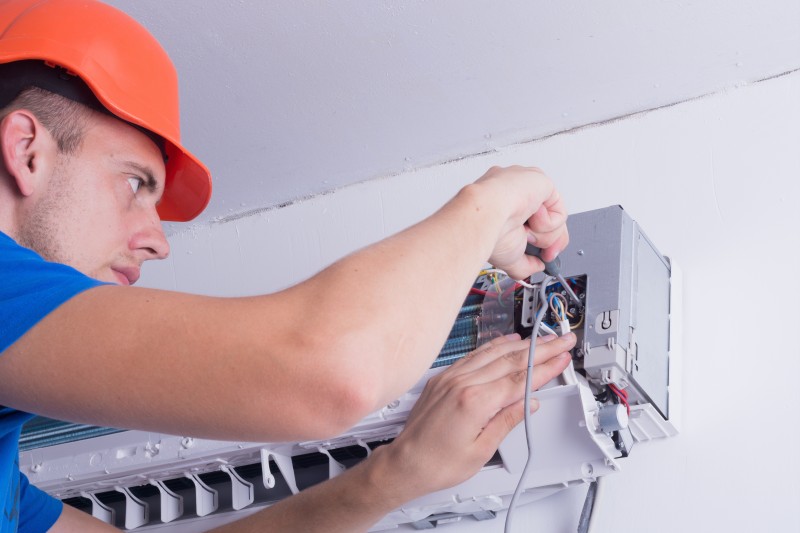Americans use air conditioning a lot, especially Americans who live in the hotter more humid parts of the country like San Antonio. Yet many people (not just Americans) don’t know how air conditioning works, or much about its history. This ignorance is a shame; because cities like San Antonio, TX owe their existence current high populations to the benefits of air conditioning. Depending on how you want to define air conditioning it actually dates back to the second century AD in China, when Ding Huan created a rotary fan to simulate a false breeze. The early forms of air conditioning were along those lines, pushing air where possible, or allowing a draft from a colder place.
In the 1700s Benjamin Franklin and John Hadley performed experiments on the effects of evaporation and cooling.
As a note these experiments occurred in Cambridge University in England before the revolutionary war. These early experiments would prove important for the development of air conditioning as we know it now. The finding was that if a liquid was allowed to evaporate it would lower the ambient temperature. The experiments were later continued by Michael Faraday who compressed ammonia then allowed it to expand. By doing this (within piping) the air around it would cool. John Gorrie then attempted to use this to create ice to cool the air in the hospital where he served as a physician.
The actual processes of air conditioning are formed on the same principles. Gas (now Freon) is compressed and allowed to expand, thus evaporating. A fan blows across the piping in which it’s compressed blowing the cold air out into the room. By cycling air through it creates condensation on the piping which is then gathered in the bottom of the air conditioner and allowed to drain out the back. This lowers the humidity which lets the body cool itself more efficiently than otherwise.
It wasn’t until air conditioning became reasonably priced and efficient that it had a major consumer impact. One of its biggest impacts was allowing more people to comfortably live through southern summers. As hot as San Antonio, TX is it’s worth remembering that in the summer Northern cities would grow so hot that the wealthy would flee town. Newport Rhode Island owes its historic mansions to the lack air conditioning. At the same time San Antonio, TX owes its population to the arrival of air conditioning. This simple principle of chemistry and thermodynamics has changed so much of modern life that we don’t even realize how deeply ingrained in the American experience it is and how some locations have their history divided as Pre-AC and Post-AC.
Air conditioning San Antonio, TX – It doesn’t matter if you love finding out about the history of everyday items and tools or if you despise it as pointless navel gazing. If you need air conditioning there’s nothing for it but to get air conditioning.







